

Allowing a governor to make additional cuts to a final state budget is a fairly new development in California and governors have taken to it with verve. For the rest of the state, however, the response is, generally, “What? I thought the whole thing was over!”
These codas are not, however, unusual. Over the centuries, in several venues, end-of-the-piece additions have caused audiences who had already breathed a sigh of contented (or not) relief, believing a work to be beautifully, or thankfully, over, to snap to attention at the start-up of one more reprise, act, movement or chapter.
Beethoven’s Symphony No. 6 in F Major, sometimes known as the Pastoral Symphony, for example, is one of those pieces that jolts the unwary applauder in the audience by going on for five, instead of the usual four, movements. It’s embarrassing to burst into applause only to find out there’s a coda and you’re making noise all alone.
» Read more about: State Budget: It Ain't Over Till It's Over »


I got my start in politics helping poor Mississippi sharecroppers register to vote. In those days even walking up the steps of the nearest town hall and asking to register could be answered with insults, threats of violence or worse. The required poll tax and quiz on the Constitution were designed to intimidate poor people and keep them off the voting rolls.
That was a fight we won, right? Not exactly. In 2011, more than 30 states introduced legislation to once again restrict the access of regular people to the voting process. Some of these new laws’ promoters are trying to limit registration through strict voter ID requirements including possession of a government picture ID or proof of citizenship. Others aim to shorten the days and times for voting or impose strict restrictions on community organizations from registering new voters. These new laws can heavily impact both senior citizens, whose birth certificates can be hard to access and who can’t afford the cost or travel involved to attain certain documents,
» Read more about: Voter Suppression: One Man, One Picture ID? »


On August 29, 2012, one of the most important job creation and environmental bills in recent memory was adopted by the legislature and sent to the governor. Senate Bill 1156 was developed and introduced by Senate President pro tem Darrell Steinberg and supported by a strong majority in both houses. Steinberg built quiet momentum behind the bill starting last February, in partnership with a broad-based coalition of community, environmental, labor, smart-growth and good-government activists, with support from the counties, infill developers, non-profit housing developers and business.
Indeed, despite the fact that the new legislation builds on the mostly eradicated foundation of the old redevelopment scheme (see background here), the bill attracted surprisingly little opposition. The Howard Jarvis Taxpayers Association and the anti-union Alliance of Building Contractors (ABC) were its only formal opponents.
While SB 1156 is a comprehensive, “big picture” bill, it would also do a lot to help ordinary Californians.
» Read more about: Sustainable Communities Bills Sent to Governor Brown »
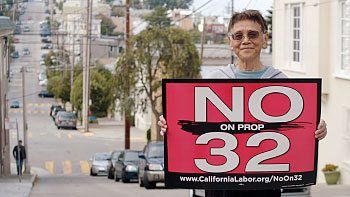
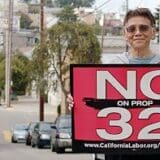
Hello, I’m Helen Gan, a member of IBEW Local 1245.
I want to persuade you to vote NO on Proposition 32. Prop 32 is a measure that will prohibit unions from contributing to political campaigns. It is part of an attempt, going on all across the country, for businesses to roll back the benefits unionization has given to workers.
I am 76 years old, and have worked for 57 years, 52 of them at PG&E. I am part of the generation who, because of the union, was able to live a good life, buy a house, travel, and have a secure old age.
I’m afraid most people have little knowledge of history, and short memories, not knowing how unions lobbied long and hard for us to get the benefits we have today.
In 1912, my mother was seven years old when she went to work in a cannery,
» Read more about: Why I'm Speaking Out Against Proposition 32 »


Local government issues may not appear to be on the Presidential ballot this November. But the national elections, for President and Congress, will affect our local governments and our daily lives for years afterward.
Like all governments, local administrations are funded by tax revenues. A small number of municipalities and counties across the U.S. have their own income taxes, usually under one percent, but sometimes higher. Every county in Indiana, Kentucky and Maryland, 560 cities and villages in Ohio, and big cities like Philadelphia, Baltimore, New York, Birmingham, and St. Louis receive funds from local income taxes. Most municipal and county governments, however, rely on property and sales taxes.
But a sizable chunk of local government spending comes from federal and state tax revenues that are then given to local governments as grants. Decisions about the federal budget thus have a major direct impact on our home towns.
» Read more about: Budget Cuts: How Slashing Nationally Hurts Locally »
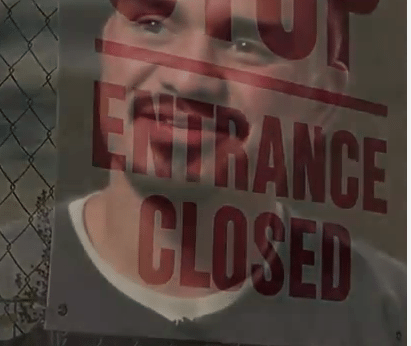

For hundreds of warehouse workers like Daniel Lopez of Riverside, working in unsafe conditions for up to 16 hours a day, for months at a time, is not uncommon. Asking for safe and clean working conditions or a reasonable work schedule could mean losing his job. (Watch Daniel’s video, above, about his experience in the warehouse.)
Last week, Daniel and I, along with other workers, went to Sacramento to urge the California Senate to pass AB 1855. They did, and if signed by Gov. Jerry Brown, AB 1855, sponsored by Assembly member Norma Torres and Senator Juan Vargas, will extend basic protections to tens of thousands of warehouse workers.
Fly-by-night contractors dominate the warehousing industry and provide a buffer between retailers like Walmart and the workers who move their goods. We have seen it many times; staffing agencies that supply workers in warehouses disappear overnight and leave workers without a job and without a paycheck.
» Read more about: Governor Brown Gets Bill to Help Warehouse Workers »


Arnold Schwarzenegger rode into the Governor’s office in 2004 on the campaign promise to “fix” the workers’ compensation system. Every day in 2004, the media hammered home Schwarzenegger’s talking points that California’s highest-in-the-nation workers’ compensation costs were driving employers, and jobs, out of the state.
In the face of a relentless media campaign and the threat of an extreme workers’ comp reform ballot measure, the Legislature passed SB 899 in 2004—a draconian bill that gutted the workers’ compensation system and created more pain and suffering for injured workers.
Since SB 899, permanently disabled workers have seen their benefits slashed to the bone. Medical treatment is delayed and denied by insurance companies, sometimes for over a year. As a result, injured workers are stuck at home battling insurance companies for the medical care they need, with no ability to return to work.
After eight years of watching injured workers struggle with a slashed permanent disability schedule,
» Read more about: Workers' Comp Bill: A Chance to Repair Arnold's Damage »


“The way the health care delivery system developed in this country has been a global scandal,” said Michael Hiltzik, author and Los Angeles Times columnist, as he concluded the community program he moderated Wednesday [August 22] on the effects of the Affordable Care Act.
Speaking at the National Council of Jewish Women Los Angeles, expert panelists acknowledged the obvious limitations of the act, which was found constitutional (for the most part) by the Supreme Court at the end of June. They also cited new benefits flowing from the legislation. But what became very clear was that there are steps we in California can take to make reform more meaningful even without action on the federal level.
If you want to skip the context and the bad news and go straight to what we can do now, please jump down the page to Recommendations for Action.


It must have seemed like a good idea at the time, when Senators Chris Dodd and Barney Frank drew up the landmark regulatory bill that bears their names. One of its lesser-known provisions required U.S. companies to list the inclusion of any “conflict minerals,” mined in or near the violence-plagued Democratic Republic of the Congo, that comprise their brand-name products. The thinking was that this would help cut off funding for the armed groups ravaging that unfortunate country.
But that was way back in 2010, when the Dodd–Frank Wall Street Reform and Consumer Protection Act was signed into law. With touching innocence, the act entrusted the Securities Exchange Commission to establish the enforcement mechanism for this part of the legislation. This week, retail giant Walmart, along with arch-competitor Target and some other companies, got a free pass from Section 1502 of the law. The news, carried by the Wall Street Journal,
» Read more about: Walmart Dodges African “Blood Minerals” Rule »


A few weeks ago an agonized fundraising appeal went out from three right-wing millionaires on behalf of the so-called “Californians for Reforms and Jobs, Not Taxes” campaign against Proposition 30.
Apparently business executives Floyd Kvamme, David Marquardt and Mark Stevens had learned that Prop 30, also known as the “Protect Schools and Local Public Safety Act,” would cause the wealthiest Californians to have to part with one to three percent more of their enormous incomes to support public education and public safety programs. Faced with the unnerving prospect that millions of school children might have smaller class sizes, and neighborhoods across the state might become safer places to live and work, they sprang into action.
Their letter to their friends in the one percent did not beat around the bush. Aimed unerringly at the naked desire of some capitalists to become ever richer at the expense of everyone else,
» Read more about: Teachers, Nurses: Save Our State from Bungling Billionaires »


On Saturday, July 28th, over 800 Teamsters gathered at the Pleasanton Fairgrounds to kick off a massive member mobilization against Proposition 32, the “Special Exemptions Act.” Teamsters came from as far away as Redding to Bakersfield, Salinas to Visalia – an area roughly larger than 41 states. View photos of the event here.
This followed a similar kickoff in El Monte in April which was attended by over 1,400 Southern California Teamsters.
Attendees learned how Prop. 32, an initiative on this November’s ballot, is very misleading. The initiative says it will remove “special interest money” from politics, when actually it is riddled with exemptions for corporations and Super PACs. Prop. 32 doesn’t reform the broken system, it actually makes it worse by allowing unlimited corporate spending. Furthermore, Prop. 32 will eliminate the voices of working families and unions in the political process.
Joint Council 7 President Rome Aloise:
Prop.
» Read more about: Teamsters: Proposition 32 Is Dangerously Deceptive »


On May 12, 1998, Danny Keysar, a 16-and-one-half-months-old toddler, was strangled at his licensed childcare facility in a Chicago neighborhood. Danny was killed by a defective children’s product where he napped in the afternoons at the childcare home. The product was a mesh portable crib, or play yard — the Playskool Travel-Lite.
On August 14, 2008, Congress passed the Consumer Product Safety Improvement Act that – for the first time – directed the Consumer Product Safety Commission to set safety standards for children’s products and required they be tested to ensure compliance. Infants and toddlers are safer as the commission sets standards for cribs, bath seats, portable bed rails, infant walkers and toddler beds, high chairs, booster chairs, hook-on chairs; gates and other enclosures; stationary activity centers; infant carriers; strollers; walkers; swings; bassinets and cradles, changing tables, infant bath tubs and infant slings.
Before this law was passed,

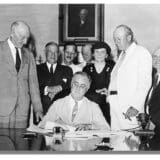
(Note: This 2010 L.A. Times op-ed appeared on the 75th anniversary of the signing of the Social Security Act. Today is that landmark legislation’s 77th birthday and, with Social Security certain to be one of the defining debate topics of this year’s presidential contest, we feel this piece is worth revisiting. Reposted with the authors’ permission.)
Alf Landon, the Kansas governor running as the Republican Party’s 1936 presidential candidate, called it a “fraud on the working man.” Silas Strawn, a former president of both the American Bar Assn. and the U.S. Chamber of Commerce, said it was part of President Franklin D. Roosevelt’s attempt to “Sovietize the country.” The American Medical Assn. denounced it as a “compulsory socialistic tax.”
What was this threat to American prosperity, freedom and democracy they were all decrying? It was Social Security, which Roosevelt signed into law on Aug.
» Read more about: Social Security Is 77 Years Old and Still a Hot-Button Topic »
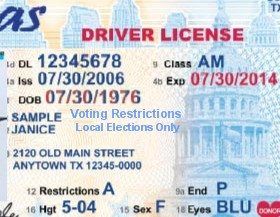

In the last two years, since the Republican sweep in the 2010 elections, GOP-controlled legislatures in many states have passed laws requiring photo identification for voters. It is widely believed that the unspoken intent of these laws is to suppress voting by groups known to be friendly to Democrats, such as African-Americans, Latinos, poor people, and young people. In a possible miscalculation, the Republicans also make it more difficult for seniors, a group that has recently trended more Republican.
Pennsylvania, has one of the toughest photo ID laws. A person must have a photo ID, such as a valid Pennsylvania driver’s license, a valid U.S. passport, or an ID issued by a Pennsylvania higher education institution or nursing home (with an expiration date). If the potential voter has none of these, s/he can obtain a state-issued card from the Department of Transportation. To do that, one must go to one of the agencies equipped to issue such cards,
» Read more about: Voter Suppression Laws: Green Cards for Citizens? »


(Beginning tomorrow, August 1, health insurance companies will be required to cover women’s preventive care without extra charges. As other provisions of the Affordable Care Act (ACA) continue to unfold over the next few years, more women will gain further access to affordable preventive health care. Countdown to Coverage has been marking the days leading up to August 1 with posts about how ACA – often called “Obamacare” by its opponents — will benefit women, while pointedly rebranding the act “MamaCare.”
The following reposted feature was written by Rebecca Spence, of the American Pacific Islander American Health Forum, and Marissa Spalding, of Black Women’s Health Imperative.)
We love MamaCare! Thanks to the health care law, on August 1 all new health insurance plans will have to provide pregnant women with coverage for gestational diabetes screening without charging us expensive co-pays and deductibles.


(This post first appeared on California Progress Report and is reposted here with permission.)
This November, California voters will have an opportunity to vote on a simple, yet important ballot initiative called Proposition 37 – the California Right to Know Act. If approved, it would require food sold in California supermarkets be clearly labeled if it has been genetically engineered.
What many probably don’t yet know is there is no clearer David versus Goliath fight on this year’s ballot. On one side, is a truly grassroots people’s movement that generated over a million signatures in just 10 weeks, easily qualifying for the November ballot. On the other stands the largest anti-union, pro-pesticide, agrichemical interests in the world dedicated to saying and spending whatever it takes to hide the fact that some of our most important crops are being genetically engineered in a lab without our knowledge or consent.


Richard Kirsch has dedicated his life to fighting for universal affordable healthcare. A senior fellow at the Roosevelt Institute and author of numerous studies on healthcare reform, Kirsch wrote New York’s Managed Care Consumer Bill of Rights. Perhaps most notable, however, is the role he played in transforming the recent political discourse with his revolutionary proposal: the public option.
In his new book, Fighting for Our Health: The Epic Battle to Make Health Care a Right in the United States, Kirsch describes the uphill struggle to bring health care to everyone. The book doubles as a memoir and ode to the power of progressive grassroots organizations. He chronicles the history of health care reform as well as his own experience designing and pushing forward the public option — a middle road between private insurance and single-payer coverage.
At a book party and fundraiser at the California Endowment,
» Read more about: The Man Behind America’s Health Care Reform »


On Tuesday, July 24, the L.A. City Council voted unanimously to ban all medical marijuana dispensaries within the city. As the Los Angeles Times explains, this is the “latest attempt to regulate what many say is an out-of-control proliferation” of the pot shops.
I am one of those who say that. Dispensaries are out of control. I am also one of those who think that the council got today’s vote totally wrong.
When the city set up its initial, partial regulatory system years ago, many dispensaries followed the city’s and the state’s rules about when and where they could operate. They worked with doctors and fully vetted their patients. They lab-tested their medicine. They submitted taxes to the city. They took over vacant storefronts. They became good employers and good neighbors.
Other dispensaries, however, skirted the rules. These dispensaries opened in a mad dash.


Just mentioning the Citizens United case is enough to boil some folks’ blood. Citizens United v. Federal Election Commission, No. 08-205 (U.S. Jan. 21, 2010) to use its full name, was the 5-4 U.S. Supreme Court decision that held that corporations and unions have the same political speech rights as individuals under the First Amendment.
The decision, equating campaign money with speech, opened the floodgates for, as some have put it, turning elections into auctions.
But, although a lot of us know something about the decision, mostly focused on its consequences, not enough of us know enough about the case itself—and some of the truly devious people behind it—and we should know.
But before we can begin connecting the dots, we need to identify the dots.
First Dot: Citizens United
The group is a conservative lobbying and propaganda shop located in Washington,
» Read more about: Proposition 32 Group Was Behind Citizens United »


(The following post is an abbreviated version of a longer feature that appears behind a subscription wall on The Nation‘s site. The full post can be read here with the author’s permission.)
There’s nothing all that remarkable about Rustin High School in West Chester, Pennsylvania—except that it is named for a gay black man who was a pacifist and a socialist. Even more amazing is that it was a Republican-dominated school board, in a conservative district that’s 89 percent white, that voted in 2002 to name the new school after Bayard Rustin, who grew up in West Chester.
Rustin helped catalyze the civil rights movement with courageous acts of resistance. In 1947 he led the first Freedom Rides and wound up serving 30 days on a chain gang, one of many times he was arrested for civil disobedience. He was the chief behind-the-scenes organizer of the 1963 March on Washington.
» Read more about: Today's Leaders of Change Are Tomorrow's Heroes »